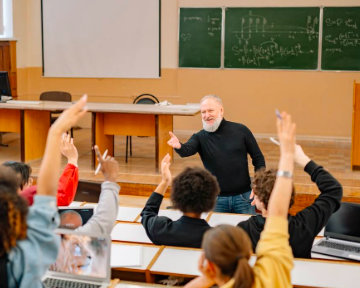The classroom of the future is already taking shape. As we look ahead to the next decade, technology promises to redefine how educators connect with students, deliver content, and inspire learning. From smart tools to personalized platforms, the way we teach is evolving—and fast.
Smarter Classrooms, Smarter Learning
Traditional chalkboards have given way to interactive whiteboards and digital displays. But that’s just the beginning. In the next ten years, classrooms are expected to become more intelligent, integrating real-time data analytics to help teachers assess student performance and adapt instruction instantly.
AI-Powered Personalization
Artificial intelligence (AI) is set to become a key ally in the learning process—not to replace teachers, but to support them. By analyzing student behaviors and learning patterns, AI can recommend tailored lessons, pinpoint learning gaps, and offer instant feedback. This helps educators spend more time on meaningful engagement rather than administrative tasks.
Virtual and Augmented Reality Experiences
Immersive learning will become more accessible. Imagine students taking a virtual trip through ancient Rome or exploring the human body in 3D—without leaving their desks. These experiences foster deeper understanding and engagement, making abstract concepts feel real and memorable.
Greater Access Through Online Platforms
As internet access expands, so does the opportunity for remote learning. Online teaching platforms will continue to grow, giving students in rural or underserved areas the same quality of education as those in urban settings. Cloud-based learning tools will allow lessons to travel with students, making education more flexible and inclusive.
Teacher Roles Will Evolve
Educators will act less like content deliverers and more like learning coaches. With tech handling the basics, teachers can focus on mentoring, critical thinking exercises, and fostering creativity. Professional development in digital skills will be essential to support this shift.
Data-Informed Decision Making
With better tools to track progress, teachers and administrators can use data to inform everything from lesson plans to curriculum choices. This helps ensure that every student’s learning journey is supported with evidence-based strategies.
A Human-Centered Future
Despite these advances, the heart of education will remain human. Technology is a tool—not a replacement—for meaningful connection, curiosity, and growth. In the next decade, the most successful educators will be those who embrace innovation while keeping the focus on students.






